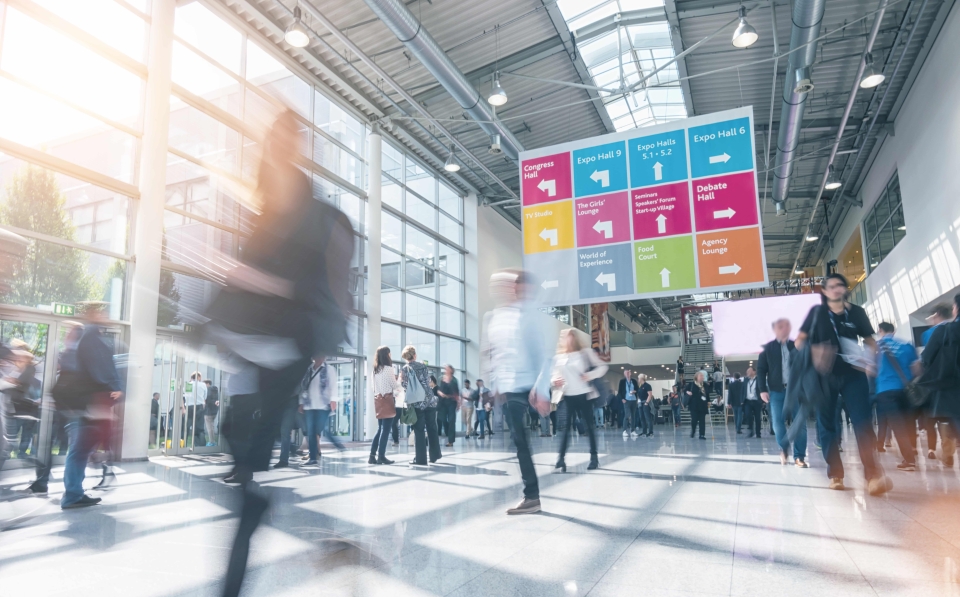Expect hybrid events, restricted travel, but hope for the best
2022/02/16 | By CENS
The global trade exhibition industry has seen its most turbulent period in the past two years, brought to an abrupt halt by the COVID-19 pandemic in 2020, seen further setbacks in 2021, and it's expected to continue into 2022, though to a lesser degree, as the industry expects in-person events to open gradually.
In an early December press release from 2021, globally-renowned event organizer Messe Frankfurt stated throughout last year, they were unable to hold “scarcely” any events during the first half of the year in Germany, which is typically the busiest season for the company. In addition, outside of Germany, events under the Messe Frankfurt banner were either continually postponed or moved to a digital format.
The exhibition industry is on track to follow similar footsteps in various sectors, which have turned to localization as global supply chains endure prolonged disruption due to the pandemic. Messe Frankfurt President and CEO Wolfgang Marzin noted that the restrictions on global travel will continue to impact the industry, as in-person international events would still pose too much risk. As a result, in the short term, Marzin expects to see the industry, depending on the sector in question, trend towards hosting events at a continental scale.
Omicron Tests Recovery Efforts
As of writing, the Omicron variant, first reported to the World Health Organization in December, is now fueling the world's latest surge, and has wreaked havoc on society's systems and services, disrupting what would've been a slow recovery to pre-COVID times.
Some international expos in early 2022 were postponed due to concerns regarding the Delta variant. This included the International Hardware Fair Cologne, slated for Sept. 25 to 28 instead of the initially scheduled Mar. 6 to 9. At present, with the vastly more transmissible Omicron variant, there are fears that the variant will continue to weigh on the economy and travel.
However, that's not a concern on the U.S.'s biggest bank, JPMorgan Chase's radar. Media abroad reported that in a letter to their clients, JPMorgan Chase global research leader Marko Kolanovic offered an optimistic view of the future ahead in 2022. He suggested that 2022 will show a full economic recovery, followed by a forecasted strong consumer spending, and return of mobility after over two years of restricted travel and border controls; whether that will come to remains to be seen.

Industry Looks Inwards
As the favorite saying goes: “Opportunity favors the prepared," and there's no other period in the recent decade that exemplifies this saying like in the past two years under the COVID-19 pandemic. For companies that have already seen the writing on the wall, and moved to implement digitalization and automation into their factory production, they quickly reaped the benefits as just-in-time manufacturing hit a snag along with the disrupted supply chain and congested seaports, and as smart manufacturing enabled them to quickly optimize their processes. There are others that had yet to jump the gun, but took the opportunity that presented itself between 2020 and 2021 to kickstart their own smart manufacturing transitions.
Aside from domestic government-led initiatives, Taiwan Hand Tool Manufacturers' Association (THTMA) had also introduced practices from overseas by facilitating networking. In a seminar hosted in late October 2021, THTMA had invited Leannovation Academy, touting "Lean Digital Transformation," and Japan's Hitachi High-Tech Corp. in Taiwan's representative to discuss lean digital transformation methods, a different approach to implementing smart manufacturing in companies.
It goes without saying that factories applying digital transformation are no longer an option, a nice-to-have, but a crucial piece to becoming more competitive in the post-pandemic era.




